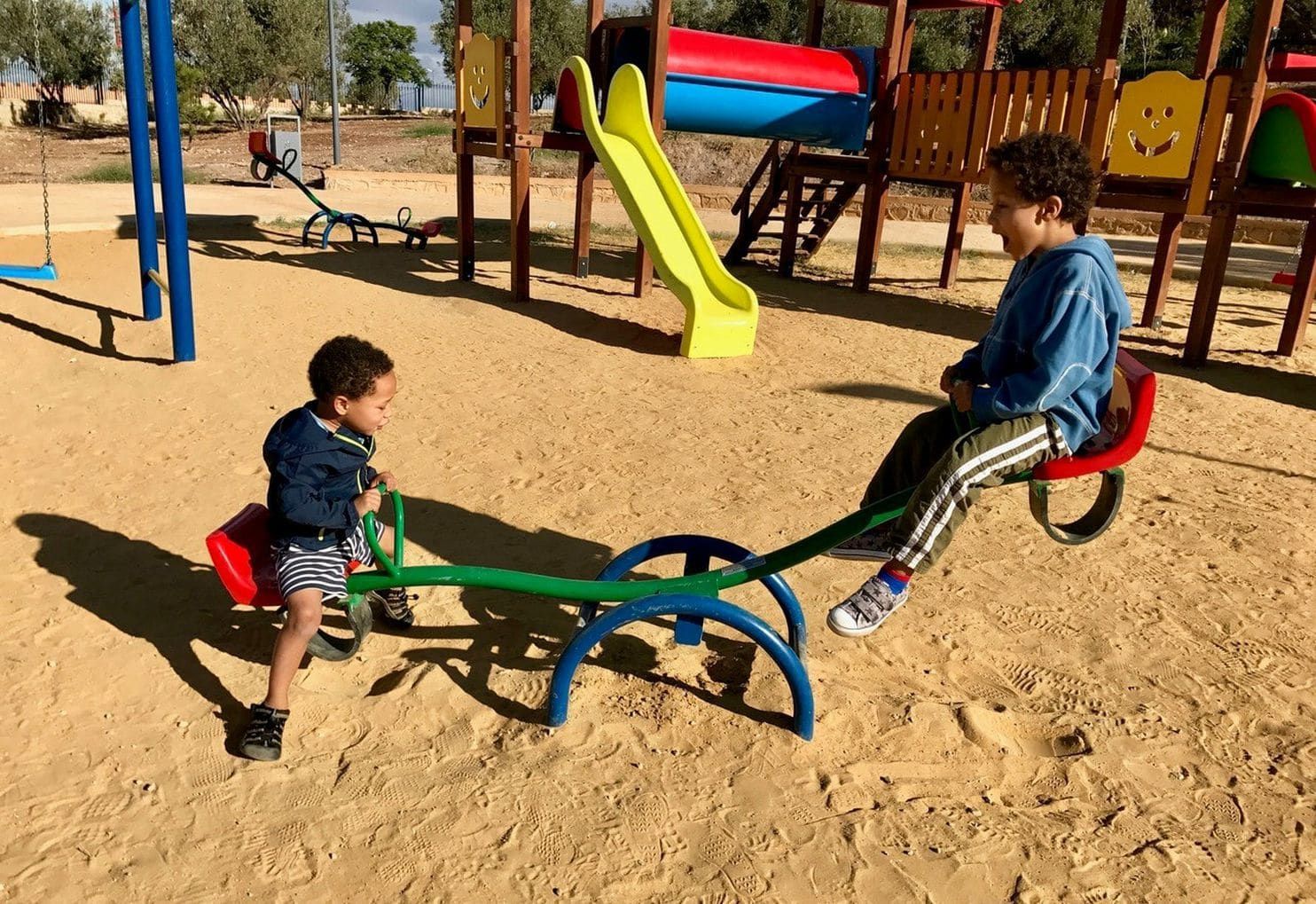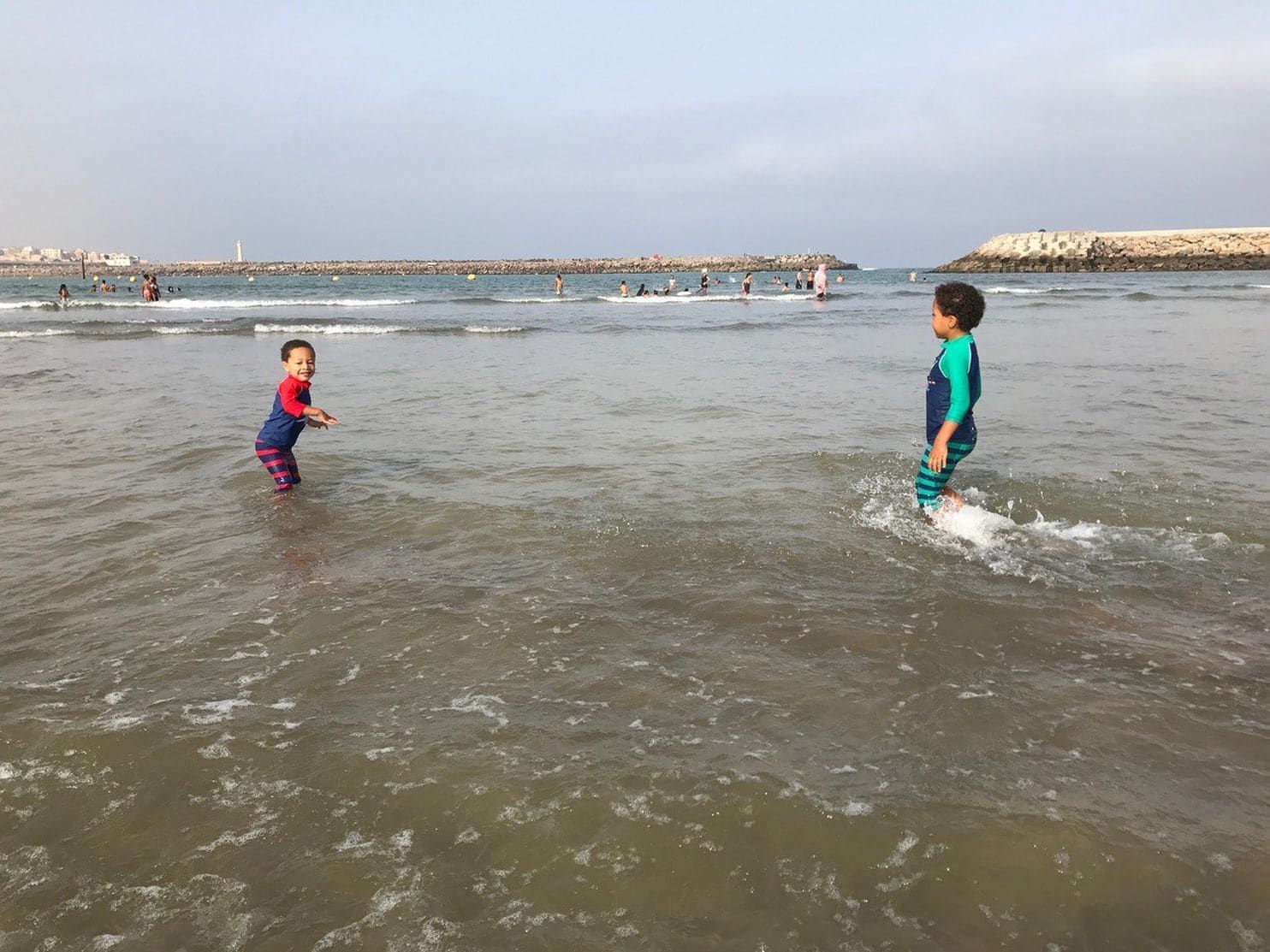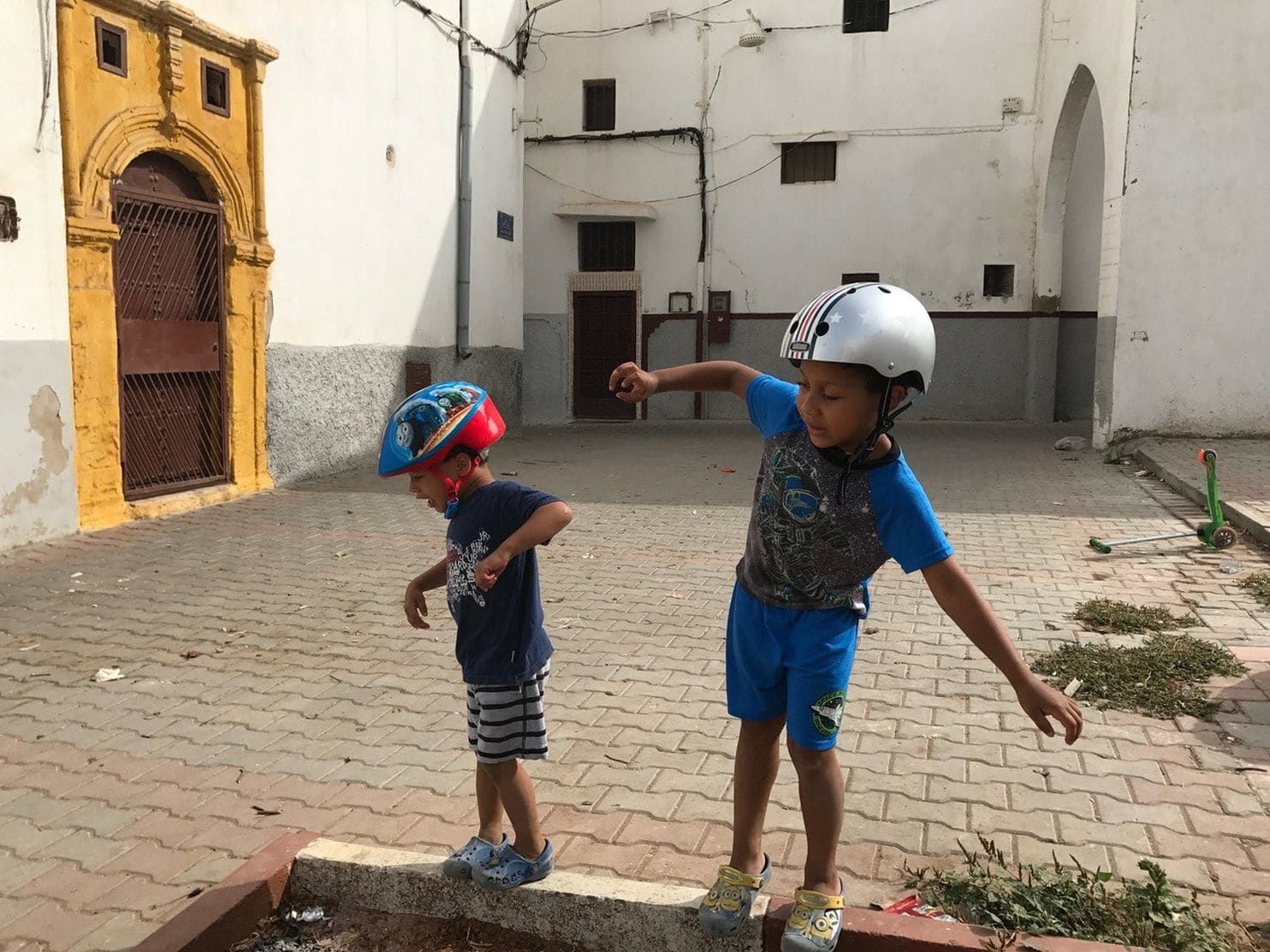RABAT, Morocco—My younger son was asleep when I pulled the rental car into a gas station just outside of the capital. After the attendant filled the tank, he opened the back door of the car and reached in to adjust my son’s head gently in his car seat before ruffling his brother’s hair. Without a word, he closed the door and turned his attention to the car behind me.
It was a moment that would occur again and again during the three months I lived in Morocco last year with my sons, ages 5 and 3 at the time. Strangers embraced my Moroccan-born children, claiming them as their own. I had adopted the boys from an orphanage in Meknes, in the central part of the country, when they were infants. This was their first trip back to the place they were born, and although they are loved in America, although they are now dual citizens traveling on American passports and although they are fully mine, in so many ways, they also belong to Morocco.
Like other parents who have adopted children from overseas, I have embraced my sons’ country of birth, incorporating as much of it as I can into our lives in Chicago. We live in a part of the city with a large population of Arabic-speakers, and there are Moroccan families at our neighborhood school. Our home is filled with art and tapestries from North Africa, and our regular play dates are with children also adopted from Morocco. I shop at an international market that sells Moroccan products, and on their birthdays, my sons dress up in traditional clothes. I’ve learned to make couscous and harira, a Moroccan soup.
We had come to Morocco so that I could report from the county and produce a documentary on autism during my first sabbatical as a newly tenured professor. Both of my sons are autistic, and as they’ve grown in America, with access to government-funded therapy and intervention, I have been acutely and painfully aware of how different their lives would have been if they had stayed in Morocco. When my oldest son was diagnosed with autism at almost age 3, the developmental pediatrician told me that if he had remained in the orphanage, he might never have spoken a word. Now in a mainstream kindergarten class, he is bilingual in English and Arabic. His younger brother, who was diagnosed with autism at age 2, chatters nonstop about his favorite subject: trains.
But we also had come to Morocco so that my sons could wiggle their toes in the dirt of their birthplace, go to school with their Moroccan peers, learn French, celebrate Eid al Adha in the city where they were born and wake up every morning to the call to prayer from the mosque.
At the beach in Mohammedia, the boys threw rocks into the surf and chased each other into the frothy waters. My oldest son put seaweed in his hair and belted his favorite songs from the movie “Moana.” By winter, most of the shops and restaurants had closed for the season, but we still traveled from our home near Rabat to visit so I could buy strawberries from the local stands and chase the boys on their scooters through the apartment complex. When the Moroccan national soccer team beat Ivory Coast to qualify for the World Cup for the first time in two decades, we listened to the celebrations through our open window and then wore our red team jerseys the next day.
In Meknes, we went several times to a playground atop a hill that overlooked the imperial city. We visited friends, ate olives and couscous, and the boys piled the cushions from the traditional Moroccan sectionals into a heap and buried themselves in a woven fort while I cooked Friday couscous.
Every Wednesday after I picked the boys up from school, we went for lunch at a small restaurant aptly named Best Pizza. The workers came to expect us every week, greeting the boys with smiles and hugs.
A friend of mine in Chicago who adopted her son from Ethiopia as a toddler told me that when she took him back for the first time, when he was 7, she watched him dangle his arms out the open window of the car, his face transfixed. She said he was surrounded by things that were new but also familiar. “The fantasy descriptions he used to relate about his life before us were suddenly replaced with concrete detail, certainty,” she shared. Later in the trip, he would call out a common greeting in Amharic to people walking on the edges of the road and then turn to his parents in excitement. “They know me! They know I’m from here!”
My boys were infants when they left Morocco. This month is the six-year anniversary of when I brought my older son home to America. When I took the boys to the orphanage to visit, they had no visible reaction to being there, to a smell that was familiar to me, to the faces I recognized but they did not. We went because I needed to show them where our journey as a family began, because it mattered to me. I’m careful, both as a child who was adopted and now as a mother of adopted children, not to put my sons into a narrative that I write for them about loss or separation, about what makes them whole. Even as I now help to shape their identities as Moroccan Americans and as children with autism, I’m aware that as they grow older, they will ultimately define themselves.
Journalist Melissa Ludtke, who produced a transmedia project about her daughter’s return to China to explore her missing girlhood, said she often wonders if she has more interest in maintaining connections with China than her Chinese-born daughter does. She has traveled to China twice with her daughter, once when Maya was 7 and again when she was 16. Her daughter, now a college student, studied Mandarin in high school and also was a member of a Chinese dance troupe while growing up.
On the trip when Maya was little, Ludtke arranged for her daughter to spend an afternoon in a public school with children her age. When she returned as a teenager in 2013, Maya traveled with another girl adopted at the same time from the same orphanage who also grew up in America. They went back to their home town and visited the orphanage. It was a different visit from the one the mother and daughter had made when Maya was smaller and seemed frightened and overwhelmed, Ludtke recalled. As a teenager, the visit “sharpened her understanding of China’s cultural traditions and her view of how different her life would have been had she grown up in this rural town where she was found as a newborn in September 1996,” Ludtke said.
Each time we visit Morocco, my boys may (or may not) become more aware of, and engaged with, the beginnings of their story. And we will keep returning not only because it’s important for them to be connected but also because I love Morocco. I hope when we return, I will remain guided by the words of journalist Elsa Walsh, who delivered a piece of parenting advice I have clung to since my older son was 1.
In a 2013 essay about why women should embrace a “good enough” life, Walsh writes about the ordinary days of childhood, the little moments that our children remember even as we construct pricey adventures and special outings for them. Her thoughts have become my mantra, passed on to friends when they become parents, shared when I talk about the hours I spend in the backyard with my sons, the glorious trips to our favorite (fenced) playgrounds and the frequent visits to the free Lincoln Park Zoo, always early, before the crowds.
In Morocco, I did not embrace the significance of our trip but rather the ordinariness of it. We didn’t hit the top tourist sites or spend hours wandering the medinas of the old cities (because really who wants to take a 3-year-old shopping anyway?) I didn’t even take them for a camel ride. Instead, the boys spent hours jumping from rocks, organizing discarded construction pipes, riding scooters and eating pizza. They went to school and played in the dirt. In the ordinary, they belonged.


